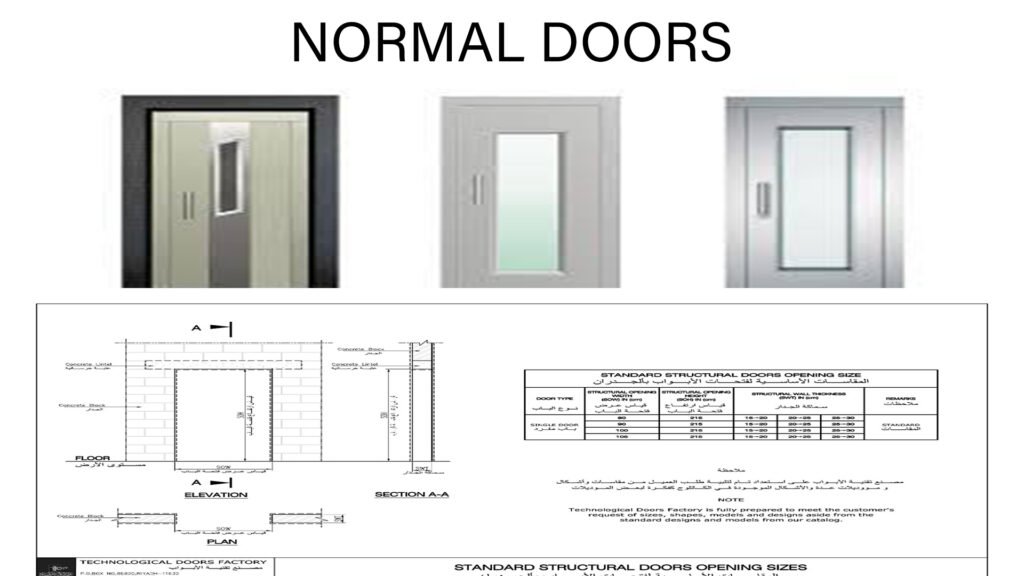Automatic vs. Manual Doors: Which is Right for Your Business?
Choosing between automatic and manual doors for your business is a decision that impacts both functionality and aesthetics. Each option has its own set of advantages and considerations, and understanding these can help you make an informed choice that suits your specific needs.

Automatic Doors: Convenience and Accessibility
Benefits:
- Ease of Access: Automatic doors provide effortless entry and exit, making them ideal for businesses with high foot traffic, such as retail stores, hotels, and hospitals. They are particularly beneficial for people with disabilities and the elderly, enhancing accessibility.
- Hygiene: In environments where hygiene is a priority, like hospitals and food establishments, automatic doors reduce the need for physical contact, minimizing the spread of germs.
- Energy Efficiency: Automatic doors can help maintain the interior climate by opening only when necessary, reducing energy loss from heating or cooling.
Drawbacks:
- Cost: Installation and maintenance of automatic doors can be more expensive compared to manual doors. Regular maintenance is crucial to ensure their proper functioning.
- Complexity: Automatic doors have more mechanical and electronic components that can potentially fail, requiring professional repairs.
Manual Doors: Simplicity and Control

Benefits:
- Cost-Effective: Manual doors are generally cheaper to purchase, install, and maintain. They have fewer components that can break down, making them a more cost-effective choice.
- Durability: With fewer moving parts, manual doors are often more robust and less prone to mechanical issues. They are a reliable option for businesses that do not require high accessibility.
- Control: Manual doors give users full control over entry and exit, which can be preferable in certain settings, such as small offices or boutique stores.
Drawbacks:
- Accessibility: Manual doors can be challenging for people with disabilities or those carrying heavy loads, potentially reducing the accessibility of your business.
- Hygiene: In environments where minimizing touchpoints is important, manual doors may pose a hygiene risk due to frequent physical contact.
Making the Right Choice
The decision between automatic and manual doors should be based on your business’s specific needs and priorities. Consider factors such as the volume of foot traffic, the importance of accessibility, budget constraints, and maintenance capabilities.
FAQs – Automatic vs. Manual Doors: Which is Right for Your Business?
1. Are automatic doors more expensive to install than manual doors? Yes, automatic doors typically have higher installation and maintenance costs due to their mechanical and electronic components.
2. How do automatic doors improve energy efficiency? Automatic doors open only when necessary, helping to maintain the interior temperature and reducing energy loss from heating or cooling.
3. Are manual doors more durable than automatic doors? Generally, yes. Manual doors have fewer mechanical parts and are less prone to malfunction, making them a durable choice.
4. Can automatic doors be used in any type of business? While automatic doors are beneficial in high-traffic and accessible environments, they may not be necessary or cost-effective for all businesses. Consider your specific needs and budget.
5. How often do automatic doors require maintenance? Regular maintenance is recommended to ensure the smooth functioning of automatic doors. The frequency depends on the door type and usage but typically involves periodic checks by a professional.
Conclusion
Choosing between automatic and manual doors involves evaluating your business needs, budget, and priorities. Automatic doors offer enhanced accessibility and convenience, making them ideal for high-traffic areas, while manual doors provide simplicity and cost-effectiveness. By carefully considering these factors, you can select the door type that best suits your business environment and operational requirements.
